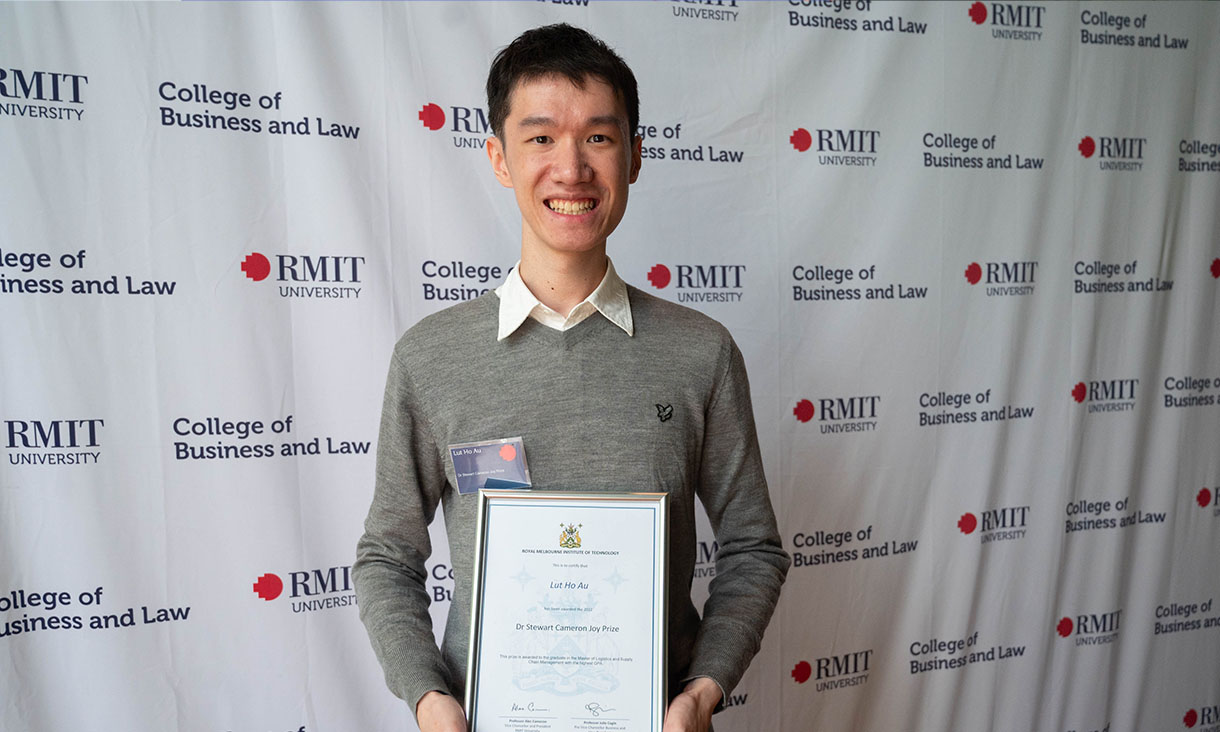The philanthropic award, which began in 1999 when Mrs Louise Joy donated a $20,000 endowment, recognises the career and life of her husband, Dr Stewart Cameron Joy, who passed away in 1998.
Dr Joy was in the first Diploma of Transport course at RMIT (then the Melbourne Working Men’s College).
Coming from a non-academic background, Dr Joy left school aged 14 to become a Junior Clerk in the Victorian Railways.
His mentors there encouraged him to apply for the Diploma of Transport at RMIT.
He then got a job at Trans Australian Airlines where he worked by day, and completed a Bachelor of Commerce at the University of Melbourne by night.
This is where he learned of a scholarship at the London School of Economics. Despite not getting into the scholarship, Stewart and Louise moved to London anyway.
After persisting, Dr Joy was accepted into the PhD program at the London Business School where he completed his thesis: a multiple regression analysis of British Railways Track Costs.
In 1964 the couple moved back to Melbourne, where Dr Joy became an economics lecturer at Monash University.
Dr Joy was then called back to the UK to advise the Minister of Transport, which led to his appointment as Chief Economist at British Railways where he worked for three years.
In his later years, he consulted with the World Bank in Washington, European Economic and Development Bank and Russian Economic Bank before setting up a consultancy firm in Sydney.
Mrs Joy presented the Stewart Cameron Joy Award to the chosen student every year until 2017.
Lut Ho said he was truly grateful to receive an award with such an inspiring history.
“I would like to express my gratitude to Mrs Joy and the Joy family for their generosity,” he said.
I consider myself very fortunate to have the opportunity to pursue my tertiary education in Australia, and I am truly humbled by this award.
“I will continue to work hard to justify the faith that has been placed in me and hope that someday I can be in a position to make a positive contribution to the education of future generations.”








